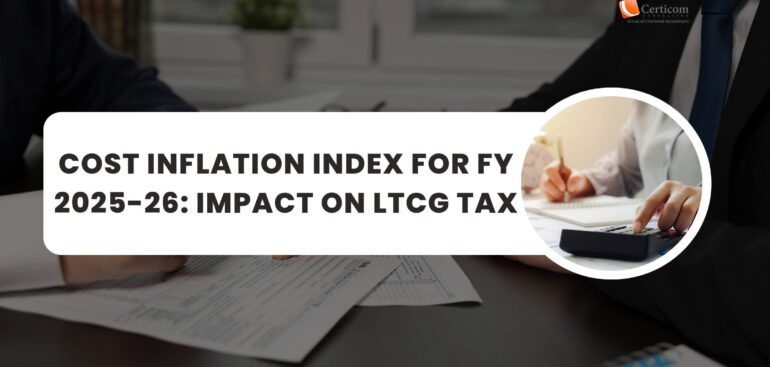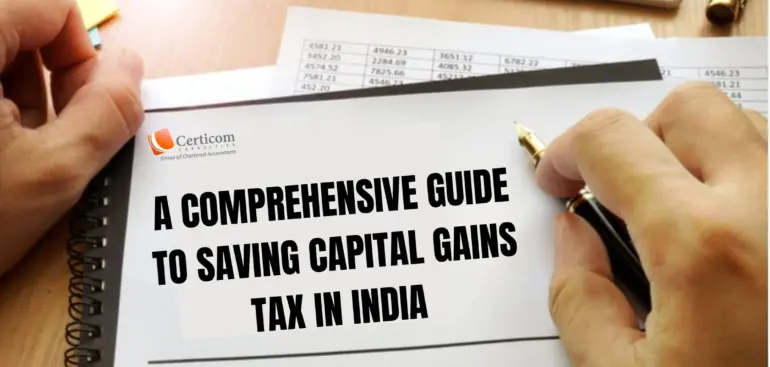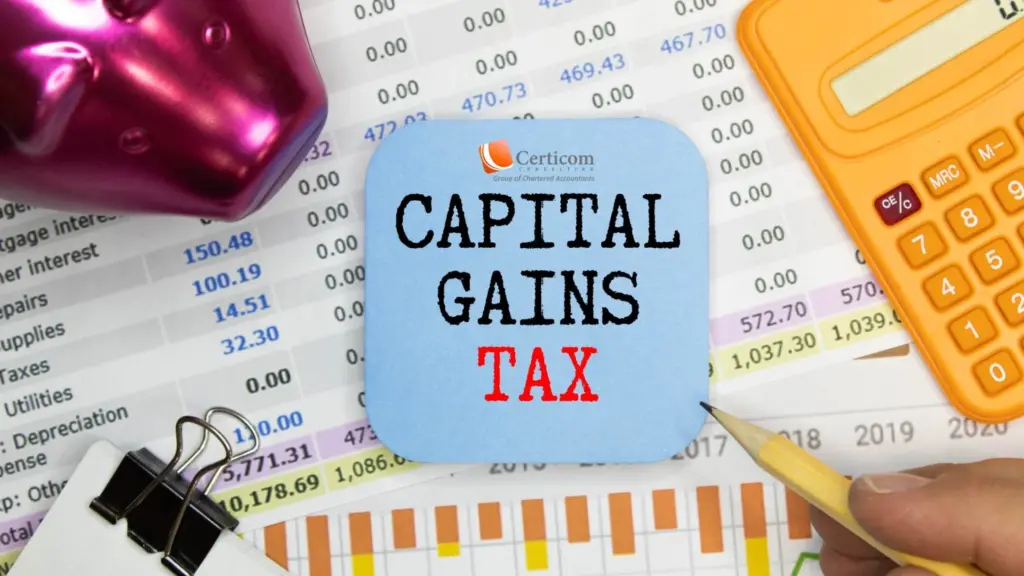Cost Inflation Index for FY 2025-26: Impact on LTCG Tax

On July 1, 2025, the Income Tax Department officially announced the Cost Inflation Index (CII) for the financial year 2025-26, setting it at 376. This annual update holds crucial significance for taxpayers, especially those dealing with long-term capital assets, as it directly impacts the computation of long-term capital gains (LTCG).
What Is the Cost Inflation Index (CII)?
The Cost Inflation Index is a metric used to adjust the purchase price of capital assets for inflation. While long-term assets such as real estate, shares, or bonds are held over the years, inflation tends to erode the real value of money. However, in accounting and tax records, these assets remain listed at their original cost. The CII bridges this gap by indexing the cost of acquisition, helping taxpayers reduce their taxable capital gains when they sell such assets.
How CII Impacts Capital Gains Tax
When a taxpayer sells a long-term capital asset (typically held for more than 24/36 months depending on the asset class), the profit is calculated by subtracting the cost of acquisition from the sale price. However, with indexation, the purchase price is adjusted upward using the CII, thus lowering the capital gains and consequently, the tax payable.
The formula used is:
Indexed Cost of Acquisition = (CII of year of sale / CII of year of purchase) × Actual Purchase Price

Example:
If you bought a house in FY 2002-03 for ₹30 lakhs, and you’re selling it in FY 2025-26:
CII for FY 2002-03 = 105
CII for FY 2025-26 = 376
Indexed cost = (376/105) × ₹30,00,000 = ₹1,07,42,857.14
This higher adjusted cost reduces your taxable LTCG significantly.
Impact of Changing Capital Gains Rules
Recent amendments in capital gains taxation have eliminated indexation benefits for many assets under the new tax regime. However, a key exception remains: residential properties.
For house properties:
If acquired on or before July 22, 2024, and sold on or after July 23, 2024, sellers may choose between:
The old regime (20% tax with indexation), or
The new regime (12.5% flat tax without indexation)
This dual-option system makes the updated CII of 376 essential for computing gains under the old regime, especially for those who benefit more from indexation.
Cost Inflation Index Table (FY 2001-02 to 2025-26)
| Financial Year | CII |
|---|---|
| 2001-02 (Base Year) | 100 |
| 2002-03 | 105 |
| 2003-04 | 109 |
| 2004-05 | 113 |
| 2005-06 | 117 |
| 2006-07 | 122 |
| 2007-08 | 129 |
| 2008-09 | 137 |
| 2009-10 | 148 |
| 2010-11 | 167 |
| 2011-12 | 184 |
| 2012-13 | 200 |
| 2013-14 | 220 |
| 2014-15 | 240 |
| 2015-16 | 254 |
| 2016-17 | 264 |
| 2017-18 | 272 |
| 2018-19 | 280 |
| 2019-20 | 289 |
| 2020-21 | 301 |
| 2021-22 | 317 |
| 2022-23 | 331 |
| 2023-24 | 348 |
| 2024-25 | 363 |
| 2025-26 | 376 |
The Role of Base Year and FMV
The base year for CII calculations is 2001-02, with a value of 100. For assets acquired before this year, taxpayers are allowed to substitute the original cost with the Fair Market Value (FMV) as of April 1, 2001, based on a certified valuation report. Indexation is then applied on this FMV, further reducing the capital gain.
When Does the New CII Apply?
The CII of 376 is applicable for any asset sold during FY 2025-26 (April 1, 2025 – March 31, 2026). This figure becomes the reference point for all indexation-related capital gains computations for the year.

Key Takeaways
CII for FY 2025-26 is 376, aiding in inflation-adjusted asset valuations.
It’s critical for taxpayers selling long-term capital assets like property or unlisted shares.
Indexation benefits remain under certain conditions, especially for property sales.
Taxpayers can lower their LTCG liability by applying the correct CII during computations.
Always assess whether the old or new regime offers better tax efficiency before filing.
With every financial year, the Cost Inflation Index evolves to reflect the current inflation scenario. For FY 2025-26, the CII value of 376 becomes an essential number in the tax toolkit of investors and property owners. It allows fair tax treatment of long-held assets by factoring in inflation and helps ensure efficient tax planning.
Related Post
Salaried and Stressed: A Step-by-Step ITR Filing Guide
Top 7 Income Tax Errors That Invite IT Notices
Resident’s Guide to Buying NRI Property in India
Book A One To One Consultation Now For FREE
How can we help? *












